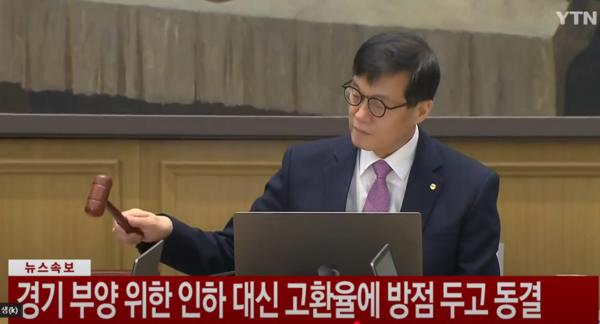Bank of Korea Maintains Base Rate Amid Economic Uncertainty
In a pivotal decision reflecting the complexities of the current economic landscape, the Bank of Korea (BOK) has chosen to keep the base rate steady at 3%. This move comes after a series of rate reductions in the previous year, signaling a cautious approach to monetary policy in the face of domestic and international challenges.

Factors Influencing the Decision
The decision was influenced by several critical factors, including heightened exchange rate volatility and political instability within the country. The Monetary Policy Committee (MPC) highlighted the increased uncertainty in the economic outlook and the foreign exchange market, noting the expansion of political risks as a significant contributor to the heightened exchange rate volatility.
Expanding Financial Support
In addition to freezing the base rate, the BOK has announced an expansion of temporary special support for financial intermediary loans, increasing the current 9 trillion won to 14 trillion won. This initiative aims to bolster liquidity support, particularly for low-credit self-employed individuals and small and medium-sized enterprises (SMEs) in provincial areas facing challenging business conditions.
Looking Ahead
As the BOK navigates through these uncertain times, the central bank remains vigilant, ready to adjust its policies as necessary to maintain economic stability. The interest rate gap between South Korea and the United States, along with potential adjustments by the U.S. Federal Reserve, adds an additional layer of complexity to the economic environment.









Comments